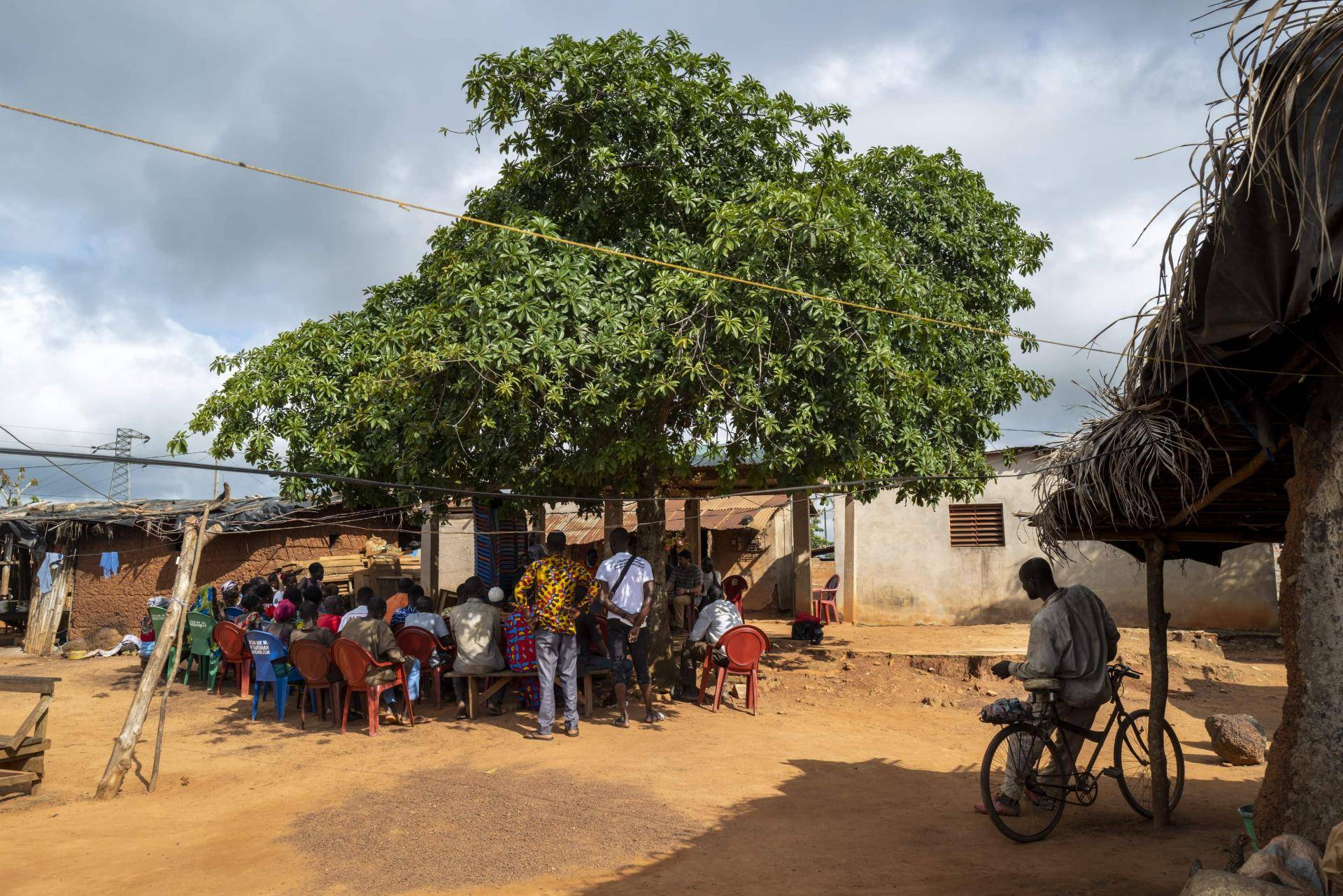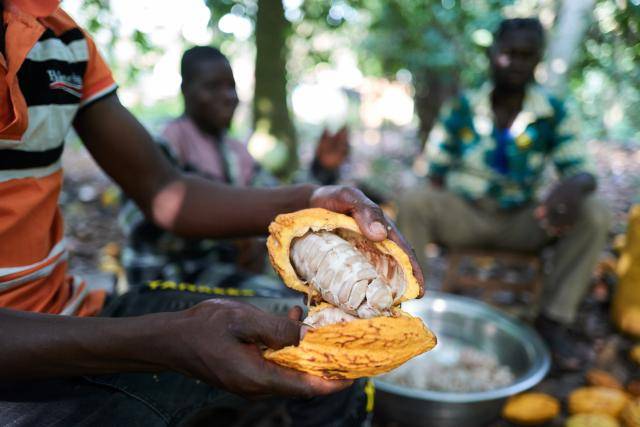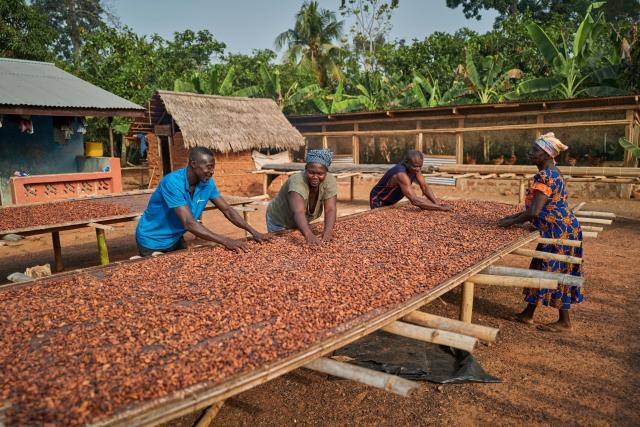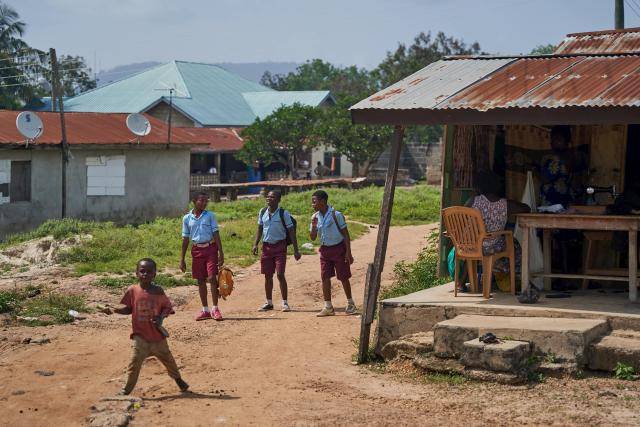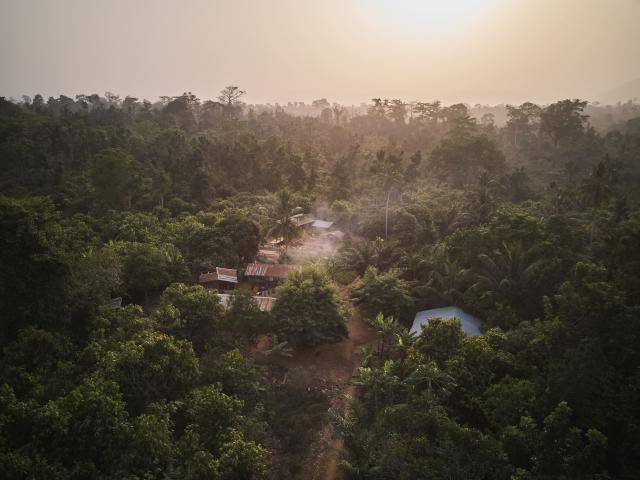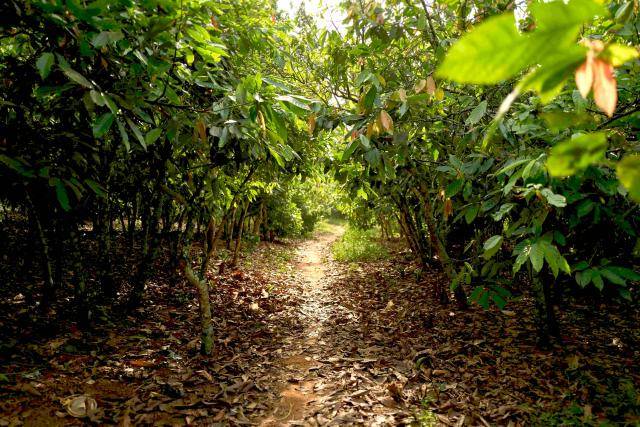The persistence of COVID-19 in 2020/21 continued to disrupt the livelihoods of many people across the globe, including cocoa growing communities. Our sustainability efforts rely heavily on Barry Callebaut's people on the ground, and despite decreased physical access to farmers and their families, we were still able to execute innovative projects and support cocoa farming communities.
Our vision extends beyond the borders of our own company. We have been vocal about our view that a fully sustainable cocoa sector cannot be done by one actor, alone. This can only be achieved through a broad-based movement and by partnering for change with all players in the cocoa sector – NGOs, industry and governments and other stakeholders.
Public intervention is required in order to drive structural change beyond our company's direct supply chain. Government action at origin is essential to address the issue of traceability, rural infrastructure development and proper enforcement of national legislation. It should be coupled with regulatory intervention in cocoa consuming regions as well as cross-industry cooperation to drive demand for sustainably sourced cocoa. In the past year we were actively engaged with trade associations and multi-stakeholder platforms to further the movement for a sustainable cocoa supply chain.
Our continued progression towards achieving our commitments
As we review our Forever Chocolate progress in 2020/21 we have continued to refine our data collection on the farmers we source from and we have teamed up with experts such as Embode, a social protection and human rights consultancy that works extensively with NGOs and intergovernmental organizations, to implement our new approach to tackling child labor. We have continued to put digital innovations in place, increasing our polygon mapping and monitoring of deforestation. One of our greatest achievements this year has been a reduction of our Land Use Change (LUC), meaning the carbon emissions resulting from the transformation of forest land to agricultural land, by over –10.0%. Achieving this outstanding feat underlines our commitment to establishing traceability in our supply chain. We have also created industry firsts in the way we measure and quantify carbon emission in dairy production.
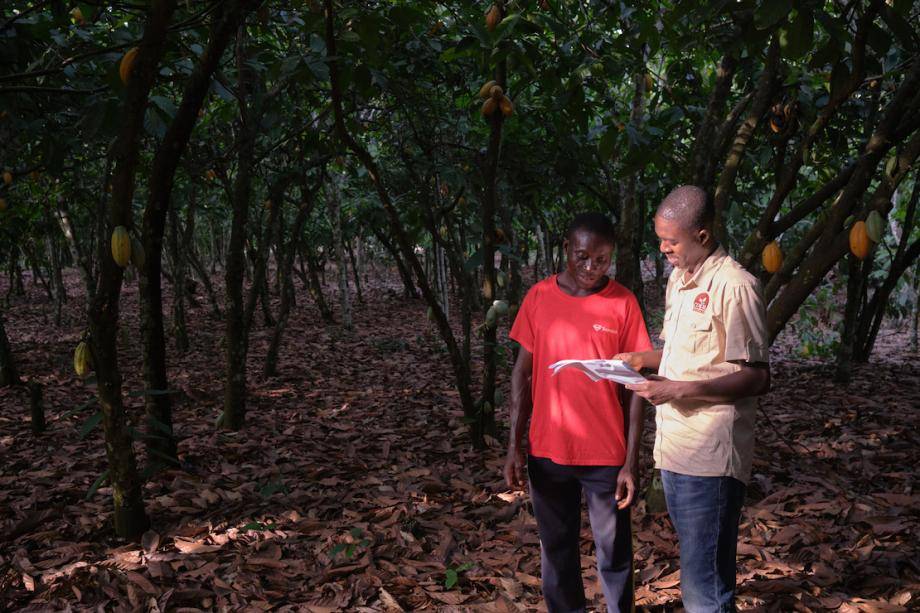
By continuing to gather farmer data, we are capturing a more detailed picture of farmer profiles and gaining a better understanding of farmer needs.
Our unique and extensive farm mapping database was expanded to cover 234,997 farmers with full data in 2020/21. This database is a critical source of information for our Farm Services Business which offers Farm Business Plans (FBPs), individualized support and coaching as well as technical advice, that takes the specific landscape of a specific farm into consideration. This tailored approach is unique and is only made possible by over 1000 dedicated people we have working on the ground in cocoa producing countries. We know that farm-specific support is more effective than a one-size-fits-all approach. That is why, in fiscal year 2016/17 we kicked off pilot projects in key cocoa-growing countries to further our understanding of country-specific sustainable cocoa farming models. In this fiscal year, Wageningen University in the Netherlands, the world’s leading agricultural university, completed its evaluation of our pilot projects in Côte d’Ivoire, Ghana, Cameroon, Brazil and Indonesia.
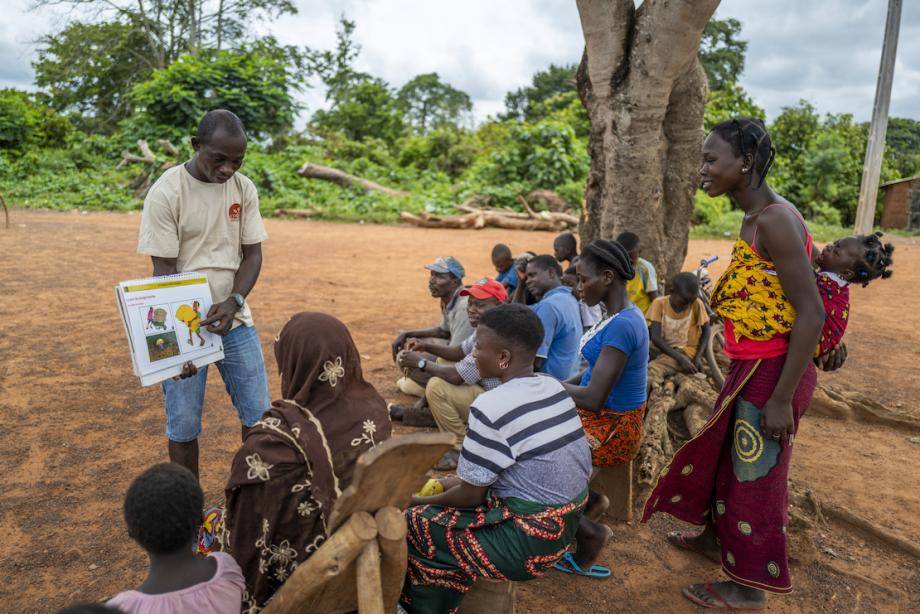
A community-centric approach is essential to tackle comprehensively child labor.
The challenges facing children in cocoa-growing communities are linked to structural issues, such as poverty, social exclusion, lack of access to healthcare and drinking water. In 2020, our partnership with Embode led to the finalization of our new approach to tackling child labor, which sets clear internal milestones between 2020 and 2025 to guide planning, implementation, and stakeholder engagement. In addition, we also continued to implement and scale-up monitoring and remediation systems based on industry practice as developed by the International Cocoa Initiative (ICI).
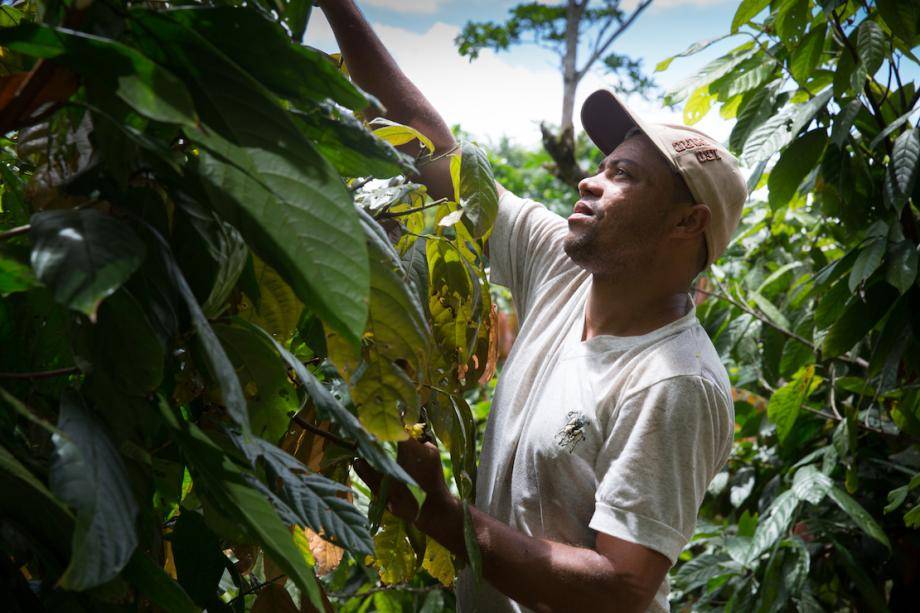
In order to become forest positive, we must continue to eliminate deforestation from our supply chain.
By reducing our carbon footprint and achieving a deforestation free supply chain, we will help to mitigate the impact of climate change, preserve ecosystems and increase the long-term productivity of cocoa in environmentally suitable areas. For Barry Callebaut, our emissions extend far beyond the locations and facilities where we produce our chocolate and cocoa products, fillings, decorations and compounds. This is why, as part of our Forever Chocolate target to be carbon positive by 2025, we committed to assessing the carbon impact created by our own operations (scope 1), the impact generated by the energy we use (scope 2), and the impact of our entire supply chain (scope 3), which includes the production and processing of all the raw materials we source, and related land use changes (LUC).
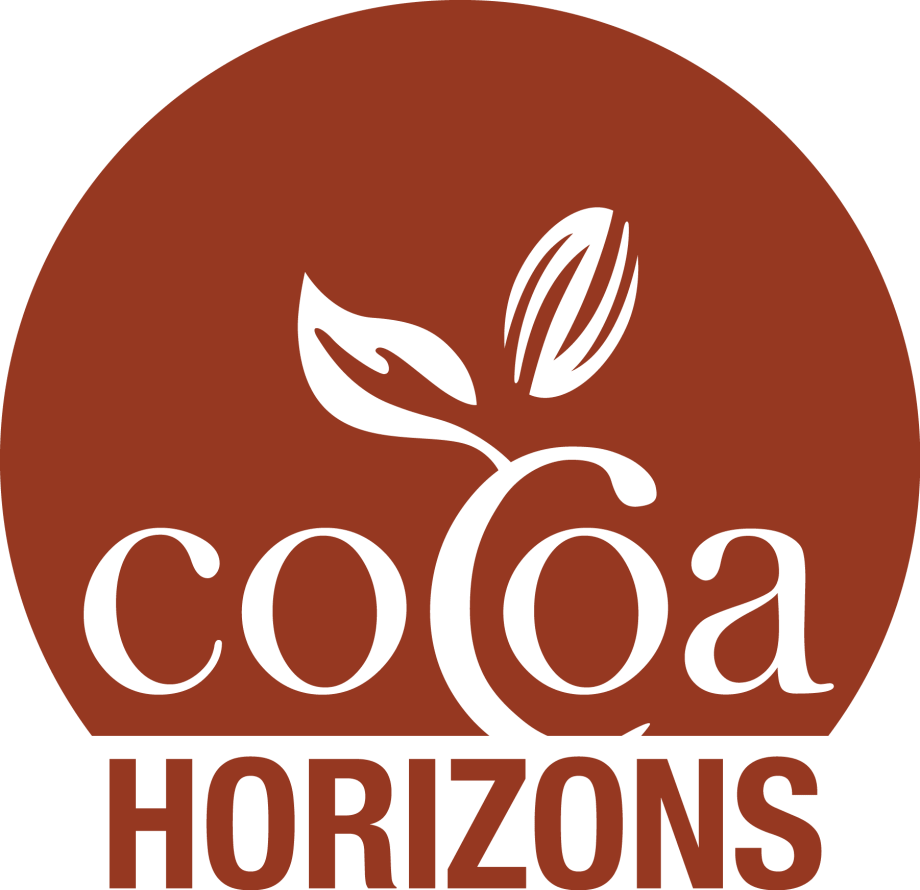
This year we have seen significant growth in Cocoa Horizons, driven by strong demand from customers.
Sustainable Chocolate
Consumer awareness of issues related to sustainable cocoa production has grown in recent years which has resulted in growing demand for sustainable and traceable cocoa and chocolate. At Barry Callebaut, we are our customers’ key partner to support turning sustainability commitments into reality. Brands can distinguish themselves from their competitors and meet consumer demands by switching to sustainably sourced raw materials, resulting in increased value and brand recognition. Our work involves engaging in sustainable cocoa certifications and programs to improve farmer livelihoods and farming practices.
Partnering for Change
A fully sustainable cocoa sector can only be achieved through the engagement and effort of all players to support the development of an enabling environment, a cause to which Barry Callebaut is fully committed. In December 2019, Barry Callebaut partnered with other companies and NGOs to call on the European Union to introduce legislation setting a due diligence obligation on all companies that place cocoa or cocoa products on the EU market.
Barry Callebaut has been actively participating in the CocoaTalks, a EU-led Multi Stakeholder Dialogue on Sustainable Cocoa, since its launch in autumn 2020, aiming to deliver concrete recommendations to advance sustainability across the cocoa supply chain through collective action and partnerships. In May 2021, Barry Callebaut together with other food sector companies called for an EU-wide legal framework to halt and reverse EU-driven global deforestation, outlining that the framework has to be ambitious in its efforts to increase global value chain accountability and transparency for at-risk commodities, such as cocoa.
It is clear that a sustainable cocoa sector requires coordinated actions with all key actors along the cocoa value chain. We believe that consuming and producing countries, industry, NGOs, farmer organizations, manufacturers and retailers - should all have clearly identified roles and accountability so that they can contribute to the implementation of a concrete and time-bound action plan, supplemented by international development aid, technical and financial assistance.
Our commitment to reporting on Environmental, Social and Governance (ESG) risks
Our values represent a mindset and way of doing business that is committed to generating sustainable earnings over time and creating long-term value for all stakeholders. We are dedicated to running all our operations with transparency and integrity, which includes reporting on our Environmental, Social and Governance (ESG) management and risks. This year we hosted our first dedicated ESG Investor Roadshow and Governance Roadshow to present and discuss ESG topics with interested investors.
External Recognition of our Progress and Impact
The recognition of Forever Chocolate this year, is testimony to our, and our partners’, ongoing commitment to create impact on the ground and lead change. For the third consecutive year, Sustainalytics has recognized Barry Callebaut as an industry leader in the management of the ESG risks in our supply chain. Our position in the top three once again confirms that we are consistently leading not only in the chocolate and cocoa sector, but also in comparison to our peers in the broader food industry.
In addition, CDP, an independent organization that receives and assesses the carbon reduction plans of over 9,500 companies every year, awarded Barry Callebaut, for the third year running, an A- (Leadership level) for our carbon reduction efforts. We were additionally awarded Leadership level as a Supplier Engagement Leader for our work on scope three emissions, which are emissions that extend beyond our direct supply chain.
